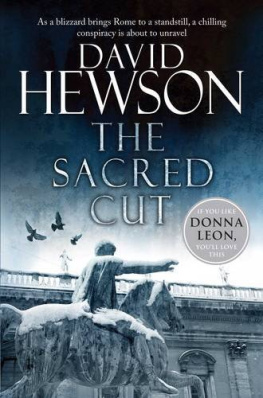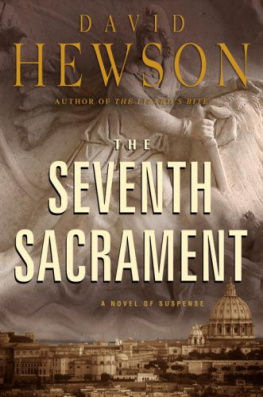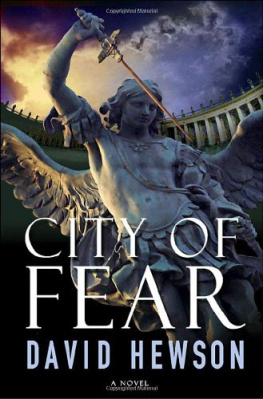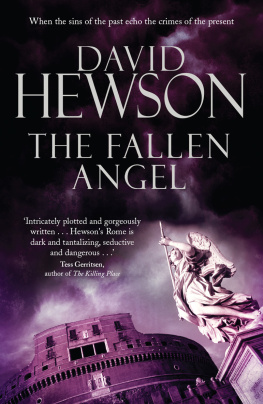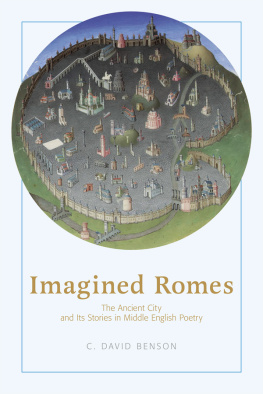The Sacred Cut
David Hewson
ITWAS NINE MONTHS NOW SINCE SHE'D SLIPPED OUT OF Iraq, six hundred dollarsin her pocket, knowing instinctively what she needed: men who owned boats andtrucks, men who knew the way to places she'd only dimly heard of and whocould take a little human contraband there for the right price. There'dbeen no work, no money at home, not since Saddam's soldiers came fromBaghdad and took her father away, leaving them alone together in the damp, coldshack that passed as a farm, with its dying crops wilting under the oil smokeof the fields outside Kirkuk.
She'dwatched the dry, dusty lane that led to their home every day for hours, waitingfor him to come back, wondering when she'd hear that strong, confidentadult voice again, bringing hope and security into their lives. It neverhappened. Instead, her mother went slowly crazy as the hope ran out, wailing atthe open door for hours on end, not cleaning anything, not even talking after awhile.
Noone liked crazy people. No one liked the decisions they forced on others. Oneday a distant relative came and took both of them away, drove them for hours ina cart behind an old, stumbling donkey, then left them with an old aunt on theother side of the plumes of smoke. Just another tin shack, no money, too manymouths to feed. Her mother was completely silent after that, spent hours withher arms wrapped around herself, rocking constantly. No one talked to them mucheither. They took her to school only every other day: there was too much workto be done trying to dig a living out of the desiccated fields. Then soldierscame and the school closed for good. She'd watched as boxes of shells gotshifted into the classrooms, and wondered how she was supposed to learn anythingever again.
Overall their lives now, bigger than the oil cloud and blacker too, hung the threatof war. The men said there'd been one before, when she was tiny. But thiswar would be different. This one would end matters, once and for all, make theKurds free forever in a new kind of Iraq. They told a lot of lies. Either thator they just got things wrong. Men were stupid sometimes.
Itwas February when the soldiers came to occupy the farm. They were Iraqis. Theybehaved the way Iraqi soldiers did around Kurds. When they wanted something toeat, they came into the house and took it. When they wanted other comforts,other services, they took them too. She was scared. She was full of an internalfury too real and violent to share. She wanted to escape from this place, gosomewhere new, anywhere, so long as it was in the West, where life was easier. Therewas no point in staying. There'd been gossip when they'd tried tosell what little produce they had in the neighbouring village one morning. Abouthow the Iraqis killed the Kurdish men they took, put them down like animals. Thesewhispered tales of horror turned a key in her head. Her father was dead.She'd never hear the comforting boom of his voice again. She understoodnow why her mother had retreated to some inner hell where no one could reachher.
Sothroughout each long day, as it became more and more dangerous to travel, shehuddled in the corner of the squalid little shack and listened to thefrightened talk around her. About death and war and uncertainty, and always,always, how more soldiers would come. Peshmurga. Americans. British. Men whowould, she knew, look much the same as the Iraqis when she stared into theireyes. They would sound different, wear different uniforms, but they were just men,mortal men, bringing death and chaos along with them, invisible, ghostlycomrades riding in the dun-coloured jeeps.
Ithappened on a cold, clear April day. The Iraqis had dug in next to the dankwaters of the dead fish pond, by the puny patch of feeble squash plants,blackened by oil smog, at the end of their lane. Five men and a big gun pointedat the sky. They were worse than most: vicious, foul-mouthed, dangerous. Scaredmen, too, and she knew why. They had just the one shell, nothing more. Theywere sitting there, wondering how to give themselves up before the Americanscame and killed them.
Inthe middle of the afternoon she'd watched as an ugly dark plane circledthe farm, like an old metal bird undecided where to lay down its feet. She'dfelt nothing, not even fear for herself. She'd stood outside the shack,ignoring the screams ordering her to hide, watching the fire streak from theblack bird's belly, race through the beautiful blue sky and wrap itselfaround the upright cylinder of the gun before the Iraqis even had a chance tospit back their single shell.
Theplane sent the soldiers screaming out of their sandbagged home, flames lickingat their contorted bodies. She wanted to see more, wanted to make sure thismemory stayed with her because it was important. So she walked closer, hid inthe stinking outside toilet, looking on through the battered palm thatching asthe soldiers danced and rolled on the ground.
Evennow, nearly a year later, she remembered what she'd thought at thatmoment. The sight reminded her of the travelling troupe of clowns who used tocome through the village from time to time, back when her father was alive. Oneof her earliest memories was of being in his arms, watching them, almosthysterical with laughter. Even so, she was aware that there was something wrongwhen the clowns returned again and again, something cruel in their humour, inthe way it exaggerated the stupidity and pain of existence and invited theiraudience to be amused by it. She had thought about laughing at the soldierstrying to save themselves from the flames that consumed their bodies. Therewere plenty of reasons to. The Kurds hated the Iraqis. The Iraqis hated theKurds. Everyone hated the Americans. It was a world defined by hatred andperhaps that was, in the end, why people laughed, because it made the pain goaway, if only for a little while.
Butshe didn't have the time to stare at them, to try to find amusement intheir throes. At that moment Laila was thinking of herself, certain that hatredwas a luxury she'd have to save for later. Somewhere in this moment therehad to be the chance of escape. Of fleeing this dying, parched land where therewas nothing left for her anymore, no love and no hope.
Whenthe flames died down she walked over to the soldiers. They were dead, contortedhusks now, charred by the fire that had spat at them from the sky. Except forone. He clung on doggedly, trying to breathe through cracked, ruined lips, eachattempt coming with pained effort. She thought he wouldn't last muchlonger. So she slid her hand inside his jacket, staring all the time into hisbright, terrified eyes. He mumbled something, a familiar insult, somethingabout thieving Kurds. Then her fingers found the envelope and he started to soblike a child.
Thisshocked her. She'd stared at him, affronted, and spoke in good Arabic,since she made a point of learning as many languages as possible in the oldschool which was now gone, books replaced by munitions boxes. "You shouldgo to God like a man," she told him. "Not a child."
Thenshe took everything she could from him--documents, coins, a pen, a watch,reasoning they would do a dead man no good anyway, and that a world in thiscondition could scarcely condemn a petty thief.
Hemust have been rich. Maybe a member of the party. He had close to $1,500 inmixed notes in an envelope. When she checked the other corpses, carefullyprising away the burnt uniforms from the flesh beneath, she found more. Somewere charred but they were dollars, the magical currency, and you could buythings just by waving the curled, brown sheets at someone. A man at a borderpost, say. Or the village elder--and there always was one--who knewthe way out, the way West, where the rich people lived.
SHEWAS DOWN TO three hundred dollars by the time she got to Istanbul two weekslater. The city was a strange and beautiful place, one that scared her becauseof the hard way people looked into her face whenever she begged in the street.
Next page
